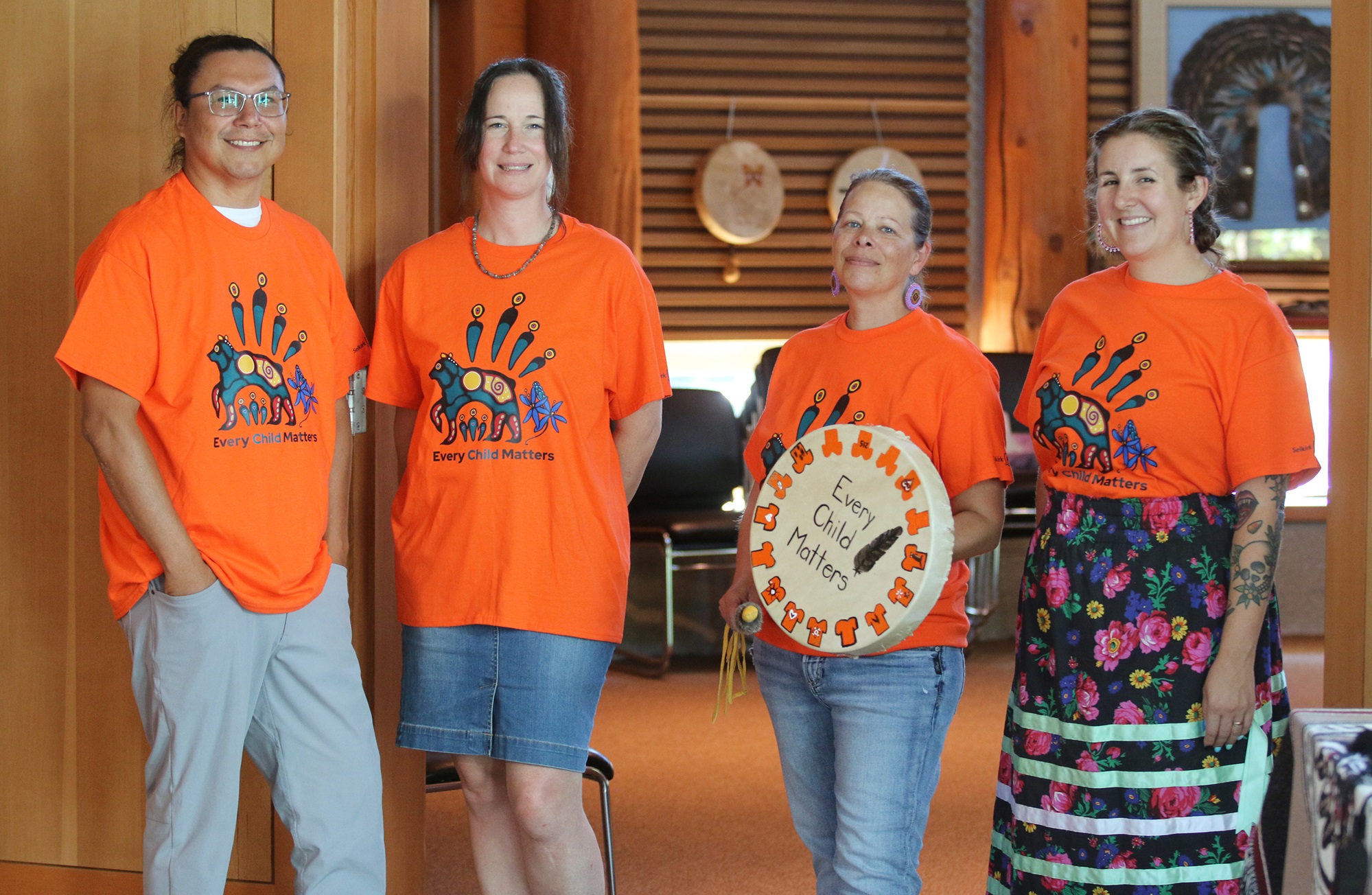Selkirk College’s Orange Shirt Day Design Carries Profound Meaning
A design deep in symbolism that’s aimed at fostering better understanding for everyone is featured on Selkirk College’s special edition Orange Shirt Day t-shirt.
In 2013, Phyllis (Jack) Webstad began telling the story of her first day at residential school near Williams Lake when her brilliant new orange shirt, bought by her grandmother, was taken from her as a six-year-old girl. Now an important part of the Canadian calendar, Orange Shirt Day takes place on September 30 where doors are opened to global conversation on all aspects of residential schools. It is an opportunity to create meaningful discussion about the effects of residential schools and the damaging legacy they have left behind.
This year’s design was created by Kamala Melzack, a college graphic designers who is an alumni of the Digital Arts Program. An important element of Indigenization and Reconciliation efforts at the college, this year’s design is indicative of the work being done at the regional post-secondary.
“Building allyship is essential to the work we are doing within our institution and Kamala’s contribution is an excellent example,” says Dianne Biin, the college’s director of Indigenous education & engagement. “Her design is beautiful and it illustrates the important elements about Orange Shirt Day and our continuous work.”
Melzack has worked in the college’s Communications & Public Engagement Department for almost a decade. A talented artist beyond the computer screen, she was invited to bring a unique offering to the Selkirk College community. Her effort resulted in a tremendous design that carries layers of meaning as explained in her artist statement:
The art style that inspired me was woodland art. The bear is seen as a protector, full of strength and is a teacher. The bear is also a symbol of motherhood. Three children (First Nations, Métis and Inuit) are seen under the bear, who is protecting them. The circle inside the bear signifies spiritual strength that travels through. The four ancestors or Elders (child, youth, adult, and Elder) are watching from beyond–guiding and watching over the present generations, and the generations to yet to come. The bear, children and ancestors form a hand, representing the bond between people and the importance of community. The camas flower that surrounds both sides represents the ties to the land, earth and ecosystem that is a special connection to family and traditions.
Raised in Nelson, Melzack is thankful to be one small part of the current actions being made at the college.
“Through the work I do at the college, I have gained deeper understanding of Indigenization, decolonization, reconciliation and the importance of working together to build stronger communities for everyone,” says the 34-year-old. “To be given this important task of designing the shirt was an honour. It has helped me broaden my understanding even further and I am grateful for the opportunity.”
Proceeds from this year’s shirt sales will go towards the Rhonda Terbasket Indigenous Support Bursary. A career practitioner with the Okanagan Training & Development Council, the late Rhonda Terbasket worked with Selkirk College students throughout their educational pursuits where she provided guidance, strength and connection.
“Rhonda’s generosity and care were extended to many individuals, including staff and students in countless ways at Selkirk College,” says Jessica Morin, the college’s Indigenous education developer. “This bursary is a way to honour her, and the way she uplifted and inspired people. Rhonda was an inspiration to all of us and the legacy of her passion to make post-secondary a key element of reconciliation stays strong at the college.”
Shirts are on sale at the Castlegar Campus Bookstore and the Tenth Street Campus Bookstore. They can also be purchased over the phone and delivered to other Selkirk College locations. The cost of the shirts is $20 for children sizes and $25 for adult sizes.


























Comments